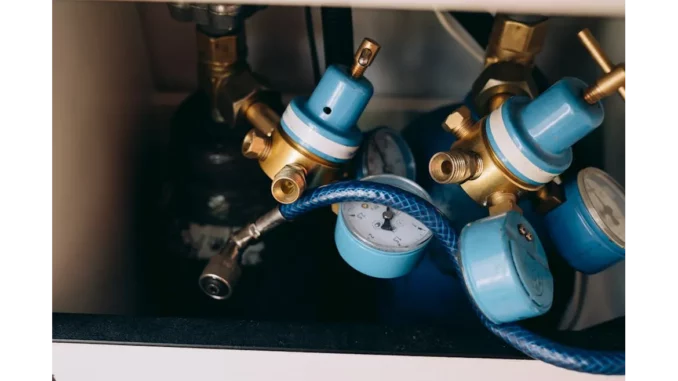
In the bustling world of commercial property management, the importance of safety compliance is a topic that can never be overstated. To delve deeper into the intricacies of gas safety regulations, I had the opportunity to sit down with an industry expert, Alex, who has spent the better part of two decades guiding businesses through the labyrinth of safety protocols. Our conversation centred around the pivotal role of the Commercial Gas Safety Certificate, known formally as the CP17, and the services offered by Focus 360 Energy.
Focus360 Energy: property compliance services – pre-planning to post-construction. Learn more.
Alex began by shedding light on the fundamental necessity of the CP17 certificate. “In today’s regulatory landscape,” Alex explained, “the CP17 is more than just a piece of paper—it’s a crucial document that underpins the safety and legal compliance of any commercial establishment using gas appliances.” The CP17 certifies that all gas appliances, installations, and pipework in a commercial property have been thoroughly inspected by a Gas Safe registered engineer, ensuring they meet stringent safety standards. For businesses ranging from restaurants and hotels to schools and hospitals, this annual check is not merely a legal obligation but a vital step towards safeguarding the health and safety of everyone who steps foot on their premises.
Focus 360 Energy, as Alex highlighted, offers a comprehensive service to ensure businesses not only meet these legal requirements but also maintain a safe operational environment. “What sets Focus 360 apart,” Alex noted, “is their commitment to guiding clients through the entire process with their certified personnel. They don’t just perform a tick-box exercise; they engage with their clients, offering insights and solutions for any issues detected during the inspection.”
The conversation naturally flowed into the consequences of neglecting these safety checks. Alex’s tone grew serious as he elaborated on the potential repercussions. “The penalties for non-compliance can be severe—ranging from hefty fines to imprisonment. But beyond the legal implications, there’s the moral responsibility of ensuring the safety of tenants, employees, and customers. A gas leak or carbon monoxide incident could have catastrophic consequences, both in terms of human life and business reputation.”
As we delved deeper, Alex touched upon the broader spectrum of safety measures, such as fire detection systems, which are also mandated in commercial properties. “While the gas safety check focuses on appliances and installations, it’s part of a wider safety net that includes regular testing of fire alarms and, in some cases, the installation of automatic fire detection systems,” he explained. “In high-risk environments like pubs or fast food premises, these additional layers of protection are vital.”
Our discussion then circled back to the proactive role that Focus 360 Energy plays in this domain. Alex praised their approach to client education and support. “They aren’t just service providers; they’re partners in safety. By encouraging open communication and addressing any queries or concerns, Focus 360 ensures that their clients are not left in the dark about the safety of their gas systems.”
In closing our conversation, Alex offered a piece of advice for commercial property stakeholders. “The key takeaway,” he suggested, “is to treat these safety checks not as a burdensome obligation but as an investment in your property’s integrity and your peace of mind. With services like those from Focus 360 Energy, you’re not just meeting a legal requirement—you’re actively contributing to a safer, more secure environment.”
As our interview wrapped up, it was clear that the diligence and expertise offered by companies like Focus 360 Energy are invaluable in navigating the complexities of gas safety regulations. For commercial landlords, duty holders, and managing agents, partnering with experienced professionals is not just a smart business decision—it’s an essential step in ensuring the safety and well-being of everyone who enters their buildings.
Find out more at Focus 360 Energy


Be the first to comment